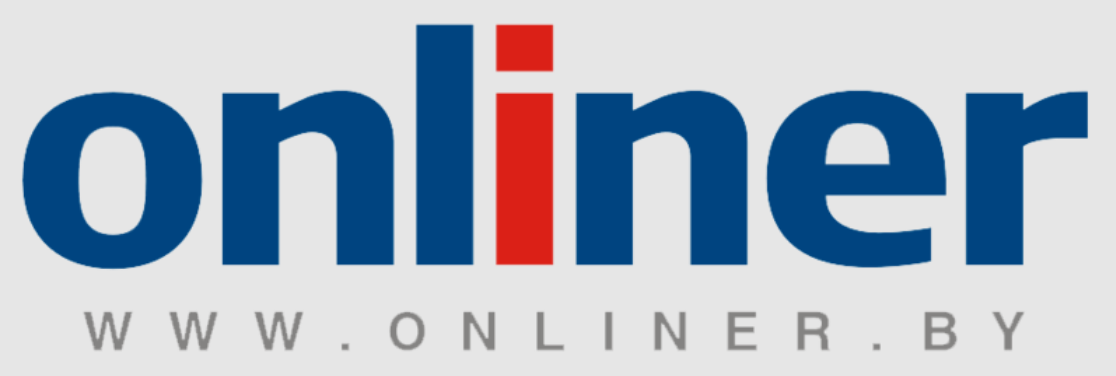Onliner.by – Belarusian News Platform
Onliner.by is a popular Belarusian information platform that brings together a wide range of important resources and services for Belarusians and others interested in Belarus-related content. It was launched in 2008 and has since become one of the most visited websites in the country. The platform serves as a comprehensive news source, covering a multitude of topics including technology, automotive news, real estate, and much more. It is renowned for its up-to-the-minute reporting on various events and issues, offering a wealth of information to its audience. Its user-friendly interface and diverse content categories make it easy for visitors to find the information they are seeking, whether it be the latest news, in-depth features, or public opinion on various issues.
Onliner.by is more than just a news outlet. It is a virtual hub that connects Belarusians around the globe and provides a platform for engaging discussions and debates. The site includes a forum section where users can exchange views, ask questions, and share their experiences on a wide array of topics. This interactive aspect of Onliner.by makes it not only a source of information but also a vibrant online community.
In addition to news and forums, Onliner.by offers a variety of other services. It has a vast marketplace where users can buy or sell everything from cars to household items. There’s also a real estate section where visitors can browse through listings of apartments, houses, and commercial properties for sale or rent. The platform also features a robust technology section, which provides reviews and comparisons of the latest gadgets, as well as expert advice on various tech-related topics.
Onliner.by is also recognized for its social responsibility initiatives. It has launched several campaigns to raise awareness about important social issues. For example, the platform regularly publishes articles that highlight the importance of road safety, environmental preservation, and responsible consumption. These initiatives reflect the platform’s commitment to not only inform but also educate its audience on matters of public interest.
In conclusion, Onliner.by is a multifaceted Belarusian platform that serves as a reliable source of news, a dynamic online community, a comprehensive marketplace, and a vehicle for social awareness. It is a testament to the power of digital media in fostering communication, promoting commerce, and driving social change. Whether you are in Belarus or anywhere else in the world, Onliner.by is your window to everything Belarusian.

Evolution and Development
Evolution and development are two interrelated concepts that have a profound impact on various aspects of life, including biological, social, and technological dimensions. Evolution is a natural, long-term process that involves changes in species over generations. It’s a mechanism that drives diversity and adaptation in living organisms, ensuring their survival and prosperity in changing environments. Charles Darwin’s theory of evolution spells out how survival of the fittest leads to natural selection, which, in turn, builds up to evolutionary change.
On the other hand, development is a planned, short to medium-term process that involves the growth and progress of individuals, societies, or technologies. It’s a phenomenon that impacts the quality of life, economic status, and technological prowess of societies. In biological terms, development refers to the growth and differentiation of a living organism from its embryonic stage to its mature form. In social and economic terms, development signifies the progress of societies towards better living conditions, higher education levels, and improved healthcare facilities, among other things.
It’s interesting to note the interplay between evolution and development. For instance, human evolution has led to the development of advanced cognitive abilities, enabling technological advancements and societal progress. Simultaneously, societal development has influenced human evolution, with changes in diet, lifestyle, and environment impacting human genetics over time. Technological development, too, has been a product of human evolution and, in turn, influences it by modifying the environment and lifestyle.
In essence, the concepts of evolution and development represent a continuous cycle of change and progress, shaping and being shaped by each other. They provide a holistic view of how life progresses and diversifies, making them fundamental to understanding the past, present, and future of life itself.
Early Blog Phase (2001−2005)
The early phase of blogging, spanning from 2001 to 2005, was a transformative period in the digital world. During this era, blogs emerged from the realm of personal diaries to become a powerful tool for communication, expressing opinions, and sharing knowledge on the internet. This was a time when people began to understand the potential of blogs as a platform for individual expression and for creating online communities around specific topics or interests. This period saw the emergence of various blog platforms that facilitated easy creation and management of blogs. These platforms included Blogger, Typepad, and WordPress, which were launched in 2003, revolutionizing the way people interacted with the web. Blogs were no longer just personal spaces; they became an essential part of online journalism, marketing, and social networking.
The early blog phase also saw the rise of political blogs, which greatly influenced public opinion during the 2004 presidential election in the United States. At the same time, corporate blogs began to appear, allowing businesses to communicate directly with their customers. In 2005, Technorati, a blog search engine and directory, reported that a new blog was created every second, highlighting the growing popularity and influence of blogging. The early blog phase was indeed a crucial period that laid the foundation for the current blogosphere and demonstrated the power of internet-based user-generated content.

Transition to Digital Lifestyle Portal (2005−2012)
Between 2005 and 2012, there was a significant shift in the everyday lives of people as they transitioned into a digital lifestyle. This period marked the advent of various technological advancements, which led to the proliferation of digital portals. These platforms provided an array of services and information at the fingertips of the users, thereby revolutionizing the way people interacted, communicated, and conducted their daily activities.
The advent of smartphones and the subsequent explosion of mobile applications during this era played a crucial role in this transition. People began to use digital portals for various purposes, such as shopping, banking, learning, and entertainment, making their lives significantly more convenient and efficient. The development of social media platforms further fueled this shift, offering a new medium for interaction and communication.
This period also saw the rise of cloud computing, which enabled individuals and businesses to store and access data and applications over the internet, thus reducing the dependency on physical storage devices. Additionally, the enhancement in internet connectivity speed and coverage during this period played a pivotal role in promoting the digital lifestyle.
The transition to digital lifestyle portals was not without its challenges. Cybersecurity emerged as a major concern, with a significant increase in incidents related to data breaches and identity theft. Privacy issues were another significant challenge, as digital platforms started collecting and using personal data for targeted advertising.
Despite these challenges, the transition to digital lifestyle portals between 2005 and 2012 was a significant milestone in the history of technology. It marked the beginning of a new era, where digital technology started to shape and influence every aspect of human life. This period laid the foundation for the current digital age, where digital lifestyle portals have become an integral part of our daily lives.
Emergence as an Independent Media Outlet (2012−Present)
The evolution of an independent media outlet from 2012 to the present day represents a significant shift in the landscape of journalism and information dissemination. This emergence is largely attributed to the technological advancements and the internet that have democratised the access and distribution of news. The traditional gatekeepers of information such as mainstream media corporations and governments have been challenged by these independent media outlets which provide an alternative perspective on events and issues. Independent media outlets have been instrumental in shedding light on under-reported stories and topics that are often overlooked or ignored by mainstream media due to various reasons such as corporate influence, political bias, or lack of resources.
The rise of social media platforms has greatly aided this emergence. These platforms have not only provided a space for independent media outlets to share their content but also enabled audiences to engage directly with the news on a real-time basis. This interaction between news producers and consumers has refined the process of news-making, where feedback from the audience is considered and incorporated.
However, the emergence of independent media outlets is not without challenges. Issues such as credibility, sustainability, and the risk of spreading misinformation are major concerns. Despite these challenges, many independent media outlets have managed to establish themselves as credible sources of news, often through rigorous fact-checking and adherence to ethical journalism standards.
In terms of sustainability, many independent media outlets rely on alternative funding models such as crowdfunding, subscriptions, and donations, which can be precarious yet provide a certain level of financial independence.
The emergence of independent media outlets from 2012 to the present represents a dynamic shift in the media ecosystem, reflecting a growing demand for diverse, transparent, and accountable journalism. These platforms have not only expanded the boundaries of news reporting but also reshaped our understanding of the role of the media in democratic societies.

Key Milestones and Achievements
Key milestones and achievements serve as significant markers in any journey, be it personal or professional. They are the stepping-stones that signify progress and development, indicating that a particular stage or level has been successfully completed or a particular objective has been accomplished. They may range from small, seemingly insignificant victories, to larger, more impactful milestones that carry profound significance. These achievements may serve as a source of motivation, boosting confidence, and fostering a sense of accomplishment. They encourage one to strive for further progress, setting new goals and objectives in the process.
In a professional setting, milestones may include obtaining a particular degree or certification, attaining a promotion, or successfully completing a major project. In a personal context, milestones can be as simple as learning a new skill, reaching a certain fitness goal, or even overcoming a personal fear.
Achievements, on the other hand, are the successful outcomes of our efforts. They are the fruits of hard work, perseverance, and determination. Achievements give us a sense of fulfillment and satisfaction, validating our efforts and rewarding our hard work. They serve as a testament to our skills, capabilities, and dedication.
Both milestones and achievements are essential components of growth and progress. They provide a tangible measure of advancement and success, offering a clear picture of where we stand in our journey. They serve as reminders of our capabilities, reinforcing our self-belief and confidence. Despite their varying degrees of significance, both milestones and achievements contribute to our overall growth and development, making them an integral part of our lives.
Notable Contributors and Editorial Team
The field of publishing, whether it be in academic journals, newspapers, or online platforms, is a collaborative effort. This work involves a dynamic team of professionals, each making a unique and valuable contribution to the output. A vital part of this team is the editorial staff, tasked with the responsibility of ensuring the quality and relevance of the content. They meticulously scrutinize each piece, perfecting the language, style, and structure, while preserving the integrity and voice of the writer.
Equally important are the contributors, who provide the raw materials for the publication. These individuals bring to the table their knowledge, insights, and unique perspectives, producing content that is informative, engaging, and thought-provoking. Notable contributors are those who have made significant contributions to their fields, whether it be in science, arts, technology, or social issues. They are often recognized experts, celebrated for their innovative ideas and profound understanding of their subject matter.
The synergy between the editorial team and contributors is essential for the success of any publication. The editorial team provides the framework and guidance, while the contributors fill this framework with rich and substantive content. It’s a symbiotic relationship, where both parties benefit from each other’s expertise and abilities. This collaborative effort results in a final product that is a testament to the dedication, hard work, and passion of all involved. In the world of publishing, the editorial team and notable contributors are the unsung heroes, working behind the scenes to enlighten, inform, and inspire readers.

Challenges and Controversies
Challenges and controversies form an integral part of society, often acting as catalysts for change and evolution in various fields. These two elements, although difficult and sometimes divisive, can stimulate critical thinking, encourage dialogue, and foster a sense of unity when resolved effectively. Challenges, whether they manifest in personal lives, professional settings, or broader societal contexts, necessitate the development of problem-solving skills, resilience, and adaptability. On the other hand, controversies often stem from differing viewpoints, belief systems, or interpretations of facts. They can spark heated debates and ignite passion for various causes, leading to a deeper understanding and respect for the diversity of opinions.
However, they can also result in conflict, misunderstanding, and polarization when not managed carefully. It is essential to approach these issues with an open mind and a willingness to engage in constructive discourse, seeking to understand rather than to merely win the argument. The resolution of controversies often sheds light on the multifaceted nature of truth and the importance of perspective. Thus, while challenges and controversies may be uncomfortable and demanding, they are also opportunities for growth, enlightenment, and progress. The ability to navigate these complex situations with grace, respect, and empathy is a testament to an individual’s maturity and a society’s progress. It is a dynamic journey that demands patience, persistence, and a commitment to learning and evolving. Ultimately, the manner in which we respond to challenges and controversies defines our character and shapes our future.
